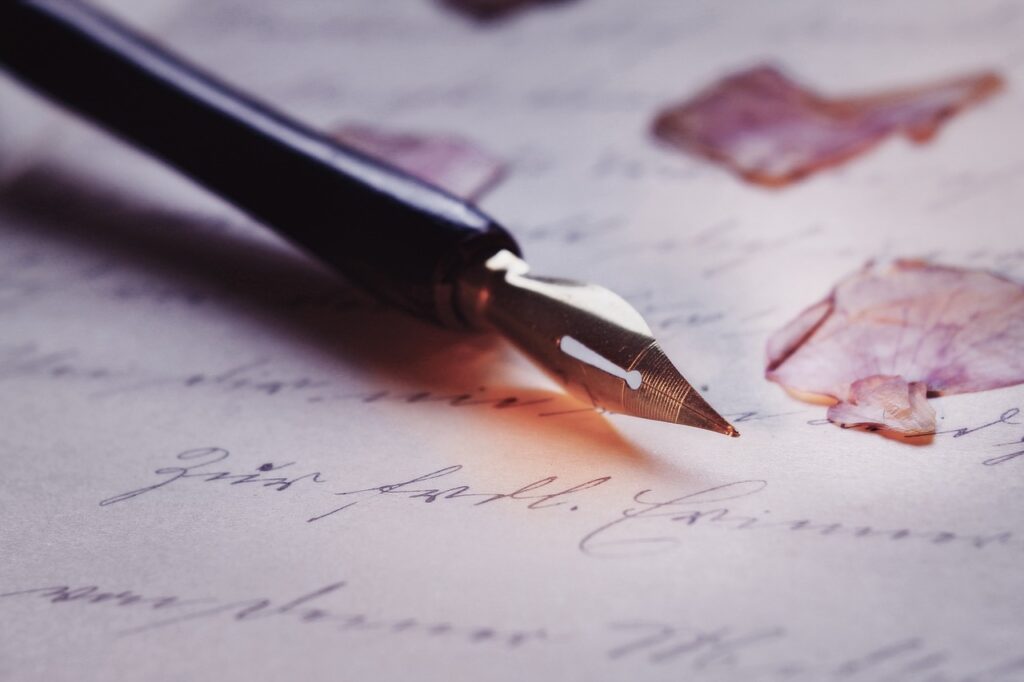
Welcome to the 7th Sunday Writer Meditation. In this session, we embark on a journey into the realm of “The Art of Mindful Writing.”
Writing, at its core, is a practice of profound self-expression. It’s an art that beckons the writer to delve deep within themselves, traverse realms of creativity, and emerge with stories, emotions, and ideas forged into words. As writers, we grapple with the demands of our craft, the inner muses that guide us, and the cacophony of distractions that surround us.
This meditation is an invitation to discover a transformative approach to writing—mindfulness. The practice of mindfulness, drawn from ancient wisdom, is about being present, fully engaged in the moment, and embracing life with intention. What if we could harness the power of mindfulness to elevate our writing process?
“The Art of Mindful Writing” seeks to do just that. Within this meditation, we explore how the principles of mindfulness can infuse our writing with intention, clarity, and authenticity. Mindful writing is not about changing who you are as a writer; it’s about enhancing your connection with your creative self.
Throughout this session, we’ll uncover techniques that foster silence and solitude as you write, techniques that enable you to let go of self-criticism and self-doubt, techniques that transport you into the sacred flow of creativity, and techniques that bring mindfulness into every word you put to paper or screen.
This meditation is not about abandoning your creative chaos or relinquishing the spontaneity of your ideas. It’s about enriching your creative journey, refining your focus, and nurturing your connection with the profound thoughts within you.
So, writers, are you ready to embark on this mindful writing adventure? Let’s awaken your inner muse, channel your creative brilliance, and craft words that resonate deeply with your readers. Join us in embracing “The Art of Mindful Writing.”

What is Mindful Writing?
Before delving into the practice of mindful writing, it’s crucial to comprehend the core principles underpinning this art. Mindful writing is an approach that invites us to be fully present in the act of writing, fostering an open, non-judgmental awareness of our thoughts and feelings.
At its essence, mindful writing acknowledges the significance of being grounded in the moment, paying unwavering attention to the process of writing itself rather than focusing solely on the final product. This approach calls for observing your thoughts, emotions, and the act of writing without evaluating or criticizing them. It encourages us to engage with our creativity with intention, offering the potential for profound personal and creative growth.
In mindful writing, every word becomes an opportunity for exploration. Rather than rushing through drafts, we linger on each word and sentence, savouring the intricacies of our thoughts. This pace invites deeper introspection, fostering a sense of connection with both our inner selves and the world that surrounds us.
In essence, mindful writing is a fusion of mindfulness practice and the act of writing. It combines the ancient wisdom of mindfulness with the art of storytelling, enabling writers to become more aware, focused, and attuned to their creative process.
As we continue this meditation on mindful writing, we’ll explore specific techniques and practices to incorporate mindfulness into your writing routine. By doing so, you can unlock the full potential of your creative expression and embrace the art of writing with renewed clarity and authenticity.

Cultivating Mindfulness for Writing
Cultivating mindfulness in your writing practice requires a deliberate effort to be present and attentive throughout the creative process. This section delves into the various techniques and exercises that writers can employ to nurture their mindfulness skills and enhance their writing journey.
Mindful Writing Prompts: These are writing prompts designed to encourage self-reflection and a heightened sense of awareness. Such prompts may invite writers to describe their surroundings in exquisite detail or to delve into their own emotions and sensations. Through these exercises, you’ll discover that the more you delve into your own experiences, the richer and more authentic your writing becomes.
Breathing and Centering: Before beginning your writing session, take a few moments to focus on your breath. Inhale deeply and exhale slowly, centring yourself in the present moment. This practice helps create a calm and receptive mind that is more open to creative inspiration. By anchoring yourself to the rhythm of your breath, you can avoid distractions and connect with your inner voice.
Flow State Exploration: Mindful writing encourages writers to find their flow state, that zone where time seems to disappear, and creativity flows effortlessly. To reach this state, choose a quiet and comfortable writing space, minimize interruptions, and let go of any self-criticism. Allow your thoughts to flow freely onto the page, without judgment or concern for grammar or structure. Afterward, you can revisit your work for editing and refinement.
Writing Meditation Sessions: Just as meditation can promote mindfulness, you can employ meditation sessions specifically designed for writers. These sessions aim to heighten your awareness of the present moment and eliminate the mental clutter that often impedes creative expression. Through guided meditation, you can gain valuable insights and breakthroughs for your writing projects.
Journaling Mindfulness: Keep a mindfulness journal alongside your regular writing projects. In this journal, reflect on your emotional and mental states as you write. What thoughts arise? What emotions surface? Are there recurring patterns in your writing process? Regularly journaling about your mindfulness during writing sessions will help you cultivate self-awareness.
By incorporating these mindfulness techniques into your writing routine, you will gradually sharpen your capacity to be fully present in your creative process. The act of observing your thoughts, emotions, and the writing itself without judgment fosters authenticity and depth in your writing.
Remember, mindfulness for writing is a practice that evolves over time. The more you engage with these techniques, the more adept you’ll become at harnessing the power of mindfulness in your writing journey.

The Power of Silence and Solitude
Silence and solitude are often underestimated but invaluable elements of mindful writing. In the fast-paced, noisy world we inhabit, these qualities provide a sanctuary where writers can find the space to listen to their inner creative voices and delve deeper into their thoughts and emotions.
Embracing Silence: Silence is more than the absence of noise; it is an opportunity to tune in to the symphony of your thoughts. In the stillness of a quiet room, you can explore the depths of your creativity without external distractions. To embrace silence, establish a dedicated writing environment, free from the interruptions of daily life. Switch off your devices, close the door, and allow the silence to envelop you.
Seeking Solitude: Solitude provides a sense of sanctuary in which your thoughts can unfurl freely. It’s about being alone with your creativity and ideas. Solitude might mean going for a solitary walk in the woods, retreating to a secluded corner in your home, or finding a quiet library or café where you can write undisturbed.
Amplifying Inner Creativity: Silence and solitude amplify the writer’s connection with their inner creativity. By distancing yourself from the constant demands of external stimuli, you invite your thoughts to come to the forefront. This is where your most profound ideas and unique writing voice emerge. In the cocoon of solitude, your imagination is free to explore uncharted territories.
Creating a Peaceful Writing Environment: To reap the benefits of silence and solitude, create a peaceful writing environment that resonates with you. This may include soft lighting, comfortable seating, and inspiring décor. Personalize your space to reflect your unique identity, nurturing a sense of belonging that can trigger creativity.
Silent Writing Ritual: Embrace silence in your writing routine by starting with a few moments of meditation or focused breathing. Close your eyes and center yourself before embarking on your writing journey. Harness the power of silence to eliminate distractions and sharpen your focus.
In the serene ambiance of silence and solitude, your mindful writing practice can flourish. It is in these moments that you hear your inner voice the clearest and draw inspiration from the depths of your being. By dedicating time to stillness and cultivating a peaceful writing environment, you’ll find that your writing becomes more authentic, profound, and engaging.

Letting Go of Self-Criticism
Self-criticism, while natural, can be a significant hindrance to mindful writing. It’s not uncommon for writers to find themselves trapped in a cycle of self-doubt and inner judgment, stifling their creativity. Learning to let go of these self-imposed limitations is essential to unlock the full potential of mindful writing.
Recognizing Self-Criticism: The first step is to recognize self-criticism when it arises. It often manifests as an inner voice that whispers doubt, questioning the quality of your work, or comparing it unfavorably to others. Be mindful of these moments; awareness is the initial key to overcoming them.
Release Through Writing Practice: Writing can be both the source of self-criticism and a powerful tool to release it. Start by journaling your inner critiques. By getting these thoughts on paper, you externalize them, making it easier to analyze and let them go. As you write, gently acknowledge your insecurities, and then challenge them by focusing on your unique perspective and voice.
Practice Self-Compassion: Self-compassion is vital in fostering creativity. Treat yourself with the same kindness and understanding that you would offer a friend. When self-criticism arises, replace it with self-compassion. Remind yourself that your writing is a journey, a process of growth and discovery. It’s perfectly acceptable to make mistakes; it’s how we learn and evolve.
Affirmations and Positivity: Utilize positive affirmations to counteract self-criticism. Create a list of empowering affirmations tailored to your writing journey. Repeat these affirmations daily to boost your confidence and quell self-doubt. An example affirmation could be, “I trust my unique writing voice and embrace the journey of self-expression.”
Silencing the Inner Critic: When your inner critic becomes particularly relentless, consider silencing it through meditation. Spend a few moments in quiet contemplation, focusing on your breath, and visualize your inner critic as a small, fading voice. Let it drift away as you return to your writing with renewed confidence.
Embracing a mindset of self-compassion and letting go of self-criticism can drastically enhance your mindful writing practice. Instead of being weighed down by doubt, you’ll experience the liberation of your authentic voice, free to explore the endless landscapes of creativity. In the absence of judgment, your words flow more naturally and authentically.

Meditation Session: Mindful Writing Practice
Before we dive into mindful writing, let’s take a moment to embrace the stillness and inner focus. Mindful writing is more than just a writing technique; it’s a path to deeper creativity and a richer connection with your inner voice. Through this meditation, you’ll cultivate mindfulness to enhance your writing experience. Find a quiet, comfortable place to sit, and let’s begin.
Step 1: Find Your Seat
Sit in a comfortable position. You can choose a chair or cushion on the floor. Rest your hands on your lap, close your eyes, and take a moment to settle in.
Step 2: Focus on Your Breath
Take a few deep breaths to center yourself. As you inhale and exhale, pay close attention to the sensation of each breath. The rise and fall of your chest, the coolness of the inhale, and the warmth of the exhale. Breathe naturally, with ease.
Step 3: Visualization
Now, imagine a serene and peaceful place. It can be a forest, a beach, or anywhere you feel tranquil. Engage your senses: hear the sounds, feel the textures, and notice the play of light. This visualization helps you connect with vivid descriptions, a valuable skill in writing.
Step 4: Body Scan
Shift your focus to your body. Start with your toes and move upward. Pay attention to each body part, checking for any tension. If you notice tightness or discomfort, acknowledge it and let it go. Feel your body becoming relaxed, prepared for mindful writing.
Step 5: Write Mindfully
Transition to writing. Open your eyes and start writing. As you do, remain fully present in each word. Be aware of the act of writing. If your mind starts to wander, gently guide it back to the words forming on the page.
As the session concludes, take a moment to reflect. How did the practice of mindfulness affect your writing? What changes did you notice in your creativity? Share your thoughts and experiences with the group, fostering a discussion on the transformative power of mindfulness in writing.
Mindful writing creates a profound connection between your thoughts, emotions, and the words you put on the page. Let’s explore this journey together.

Journaling: Capturing Mindful Insights
Now that we’ve experienced mindful writing, it’s time to preserve your insights. This journaling exercise will help you document and deepen your mindful writing practice. Here’s what you can do:
- Grab Your Journal: Open your journal or digital note-taking app. Find a quiet space where you can reflect without interruptions.
- Document Your Insights: Begin by writing about your experience with mindful writing during the meditation. What thoughts, feelings, or images arose during your mindful writing session? Be honest and detailed in your descriptions.
- Uncover Patterns: Are there recurring themes or emotions in your mindful writing? Did you notice any surprising connections between your thoughts and your writing? Document these patterns, as they can be valuable sources of inspiration in your creative work.
- Write a Gratitude List: To further foster mindfulness, jot down a list of things you’re grateful for. This simple practice can enhance your overall sense of well-being and encourage positivity.
- Daily Reflection: Make journaling a daily ritual. Spend a few moments each day reflecting on your writing journey, your emotions, and the impact of mindfulness on your creative process.
- Set Intentions: Consider setting intentions for your mindful writing practice. What do you hope to achieve? What aspects of your writing do you wish to improve? Writing down your intentions helps you stay focused.
- Revisit and Revise: Periodically revisit your journal entries to review your progress. What changes have you noticed in your writing and your state of mind since you began practicing mindfulness?
- Share with the Writing Community: If you’re comfortable, share your experiences with the writing community. Engaging in discussions about mindful writing can be enlightening and provide inspiration to others.
Journaling becomes a powerful tool for fostering ongoing mindfulness. It’s your space to reflect, learn, and grow in your writing journey.

Conclusion: Nurturing Your Creative Mind
As our mindful writing journey draws to a close, it’s essential to reflect on the insights gained during our meditation session. Let’s recap the key takeaways:
Mindful Awareness: Mindfulness is a powerful tool for writers. By practicing mindful writing, we can access deeper creativity, remain present in our work, and cultivate a more profound connection to our inner voices.
Release Self-Criticism: One of the barriers to creativity is self-criticism. We’ve explored techniques to let go of self-doubt and foster self-compassion, enabling us to write with more freedom.
The Power of Silence: We’ve also emphasized the role of silence and solitude in nurturing creativity. Creating a peaceful writing environment can help you harness your inner creative potential.
Mindful Reflection: Our meditation session encouraged reflection on the role of mindfulness in your writing journey. The insights gained today are the beginning of a mindful writing practice that can transform your creative process.
We encourage you to continue your journey into mindful writing. The benefits extend beyond today’s session, enriching your writing and your connection to your creative wellspring.
Let’s be Mindful!
Your experiences with mindful writing are invaluable. We invite you to share your insights, questions, and reflections with our writing community. Engaging in discussions and exchanging ideas can be enlightening for everyone.
Looking ahead, we have several exciting projects and events designed to empower writers. Stay tuned for our upcoming meditation sessions and workshops, as well as opportunities to contribute to our writing community.
Remember, mindfulness is an ongoing practice. By nurturing your creative mind through mindfulness, you open the door to limitless possibilities in your writing. Thank you for joining us for this Sunday Writer Meditation.


